OUR SCHOOL TRANSFORMATION STRATEGY
Click on the numbered tabs below to read more about our 7 stage
School Transformation Strategy and ways that you can help.
STEPS 1 TO 3
Unsupported schools in poor villages are depressing to visit. The buildings are dirty and decrepit, there are no working toilets, the children lack basic stationery and the teachers have very few resources to teach with. Once we identify a school in need and have the financial backing to support it, we consult with the locals about their needs as a community.
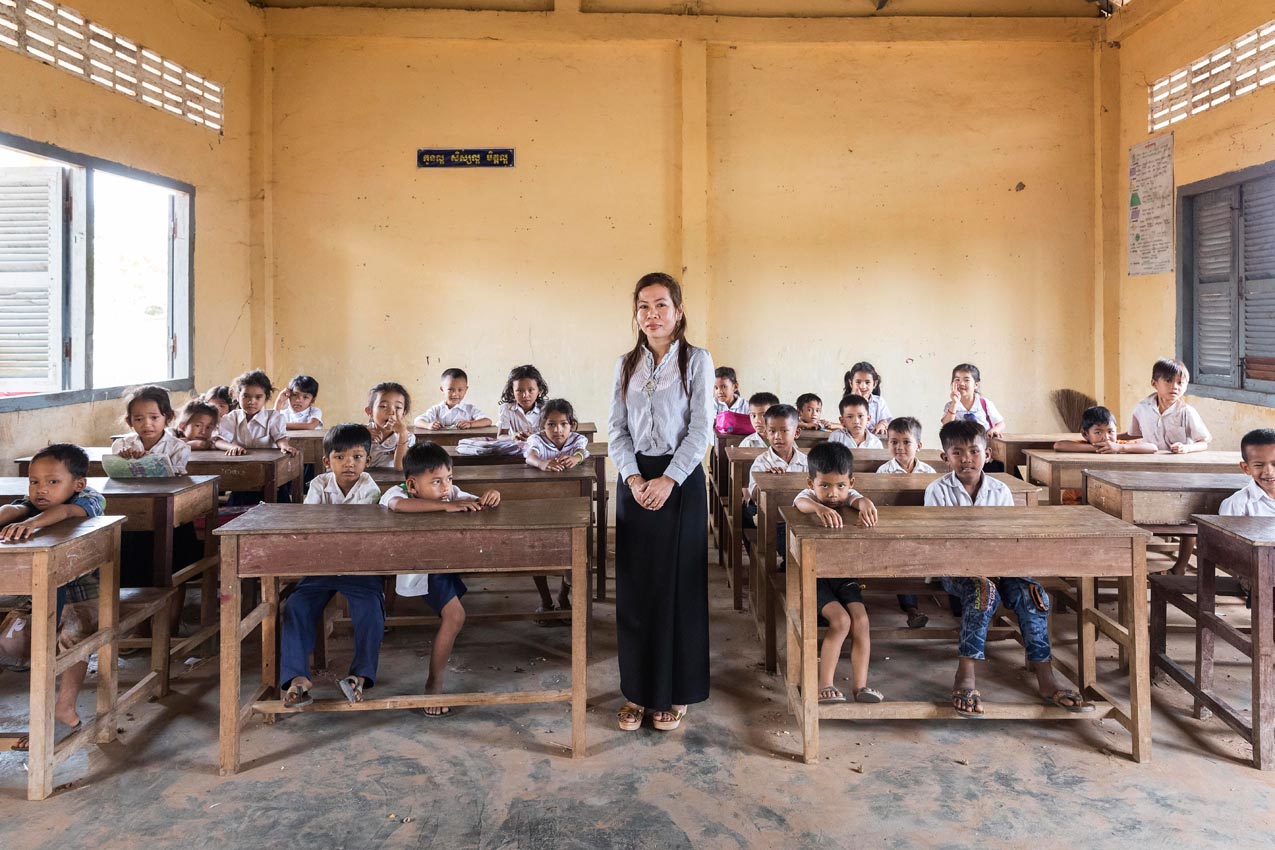
We work closely with trusted, credible Cambodian networks and individuals directly within rural communities. This partnership enables us to together identify the needs of the community and the school and to work together to meet them. We employ ten Cambodian staff and these wonderful people work at the local level to ensure we achieve direct, measurable and sustainable results.
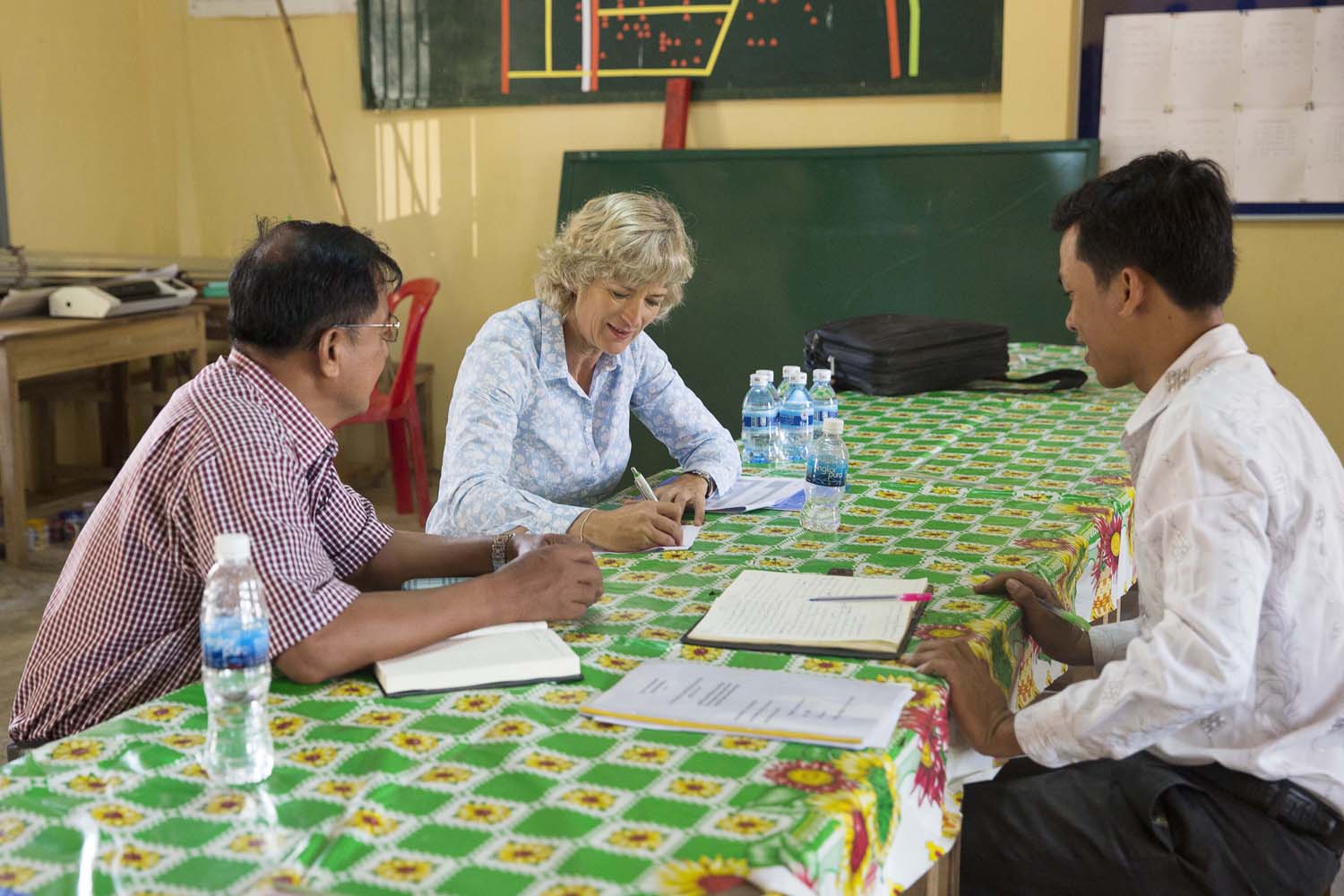
Many classrooms are dark inside with broken shutters and doors. They have broken floors and blackboards, which are no longer readable. We fix the shutters, repair the floor, paint the walls white to lighten the room and put in a brand new blackboard or whiteboard.
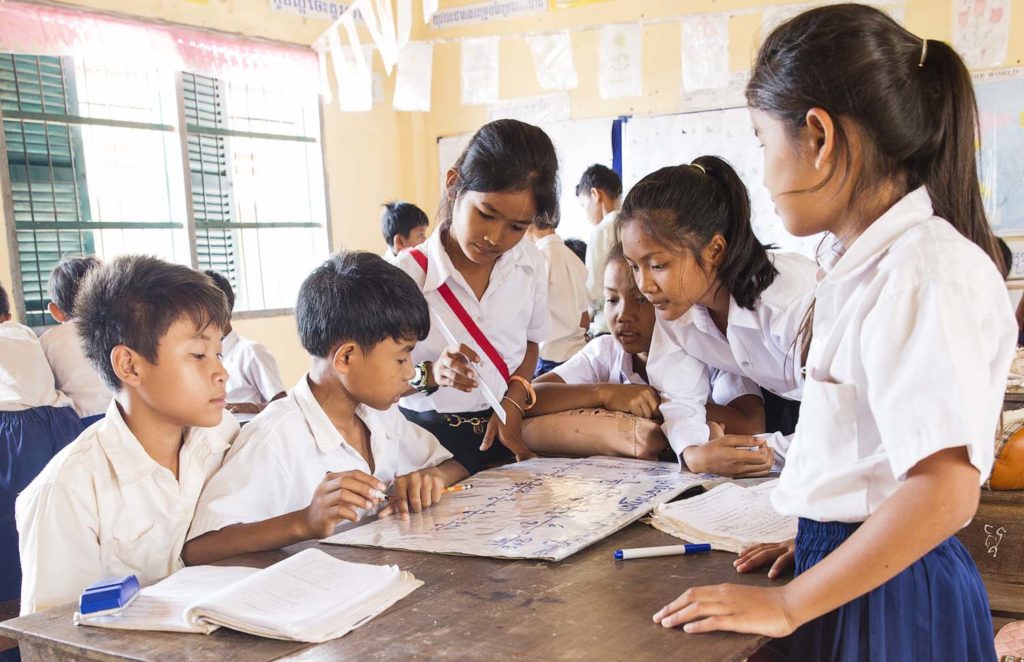
Most students have never experienced a sense of pride in their studies, nor have they had any materials to beautify their classroom. We install three subject specific display boards – bright blue, red and green – which the teachers use to display the children’s work. This small change makes a massive impact on the children’s sense of achievement and their desire to do well in their studies. They also love creating artwork to brighten their classroom environment.
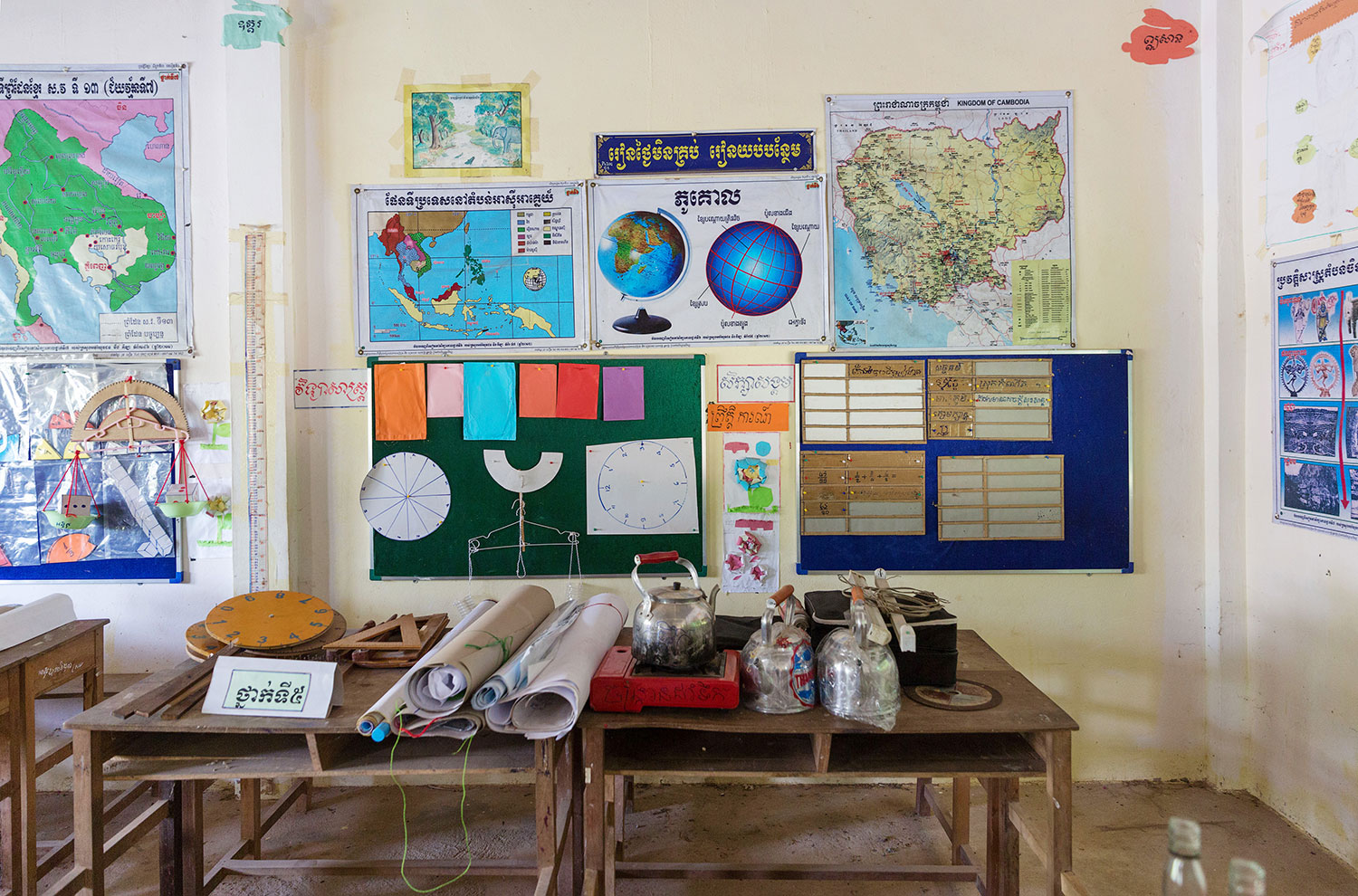
There is usually a small classroom, which we refurbish as a bright, inviting library with shelves, books, low tables for the children to sit at, art materials and mats on the floor. This inviting space often becomes the heart of the school. We stock the library with top quality books, which benefit not only the children but also their families. A number of good NGO’s produce books, which provide life-skills information, and address social and environmental issues. We also stock books with positive stories for children. These books are well loved!
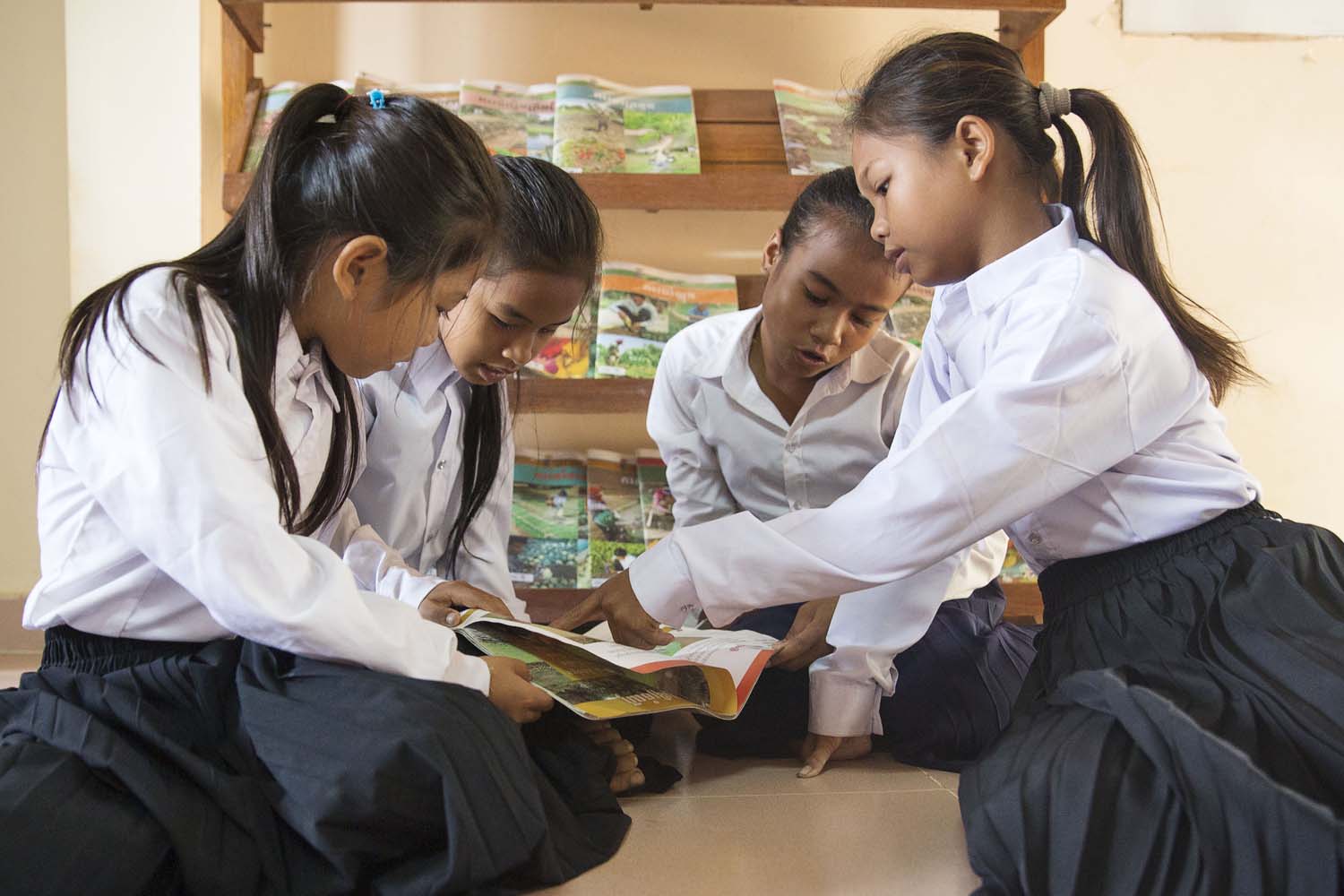
Cambodian children are like children anywhere – they need a place where they can run, play and let off steam. We build basic playgrounds at the school using local materials such as wood, ropes and tyres.
“In the beginning I thought playgrounds were a frivolous luxury in light of more pressing needs, but I have come to understand how important they are for child development and for children to have a positive association with school. If school is a fun and positive experience, they will keep coming back. “ ~ Denise Arnold
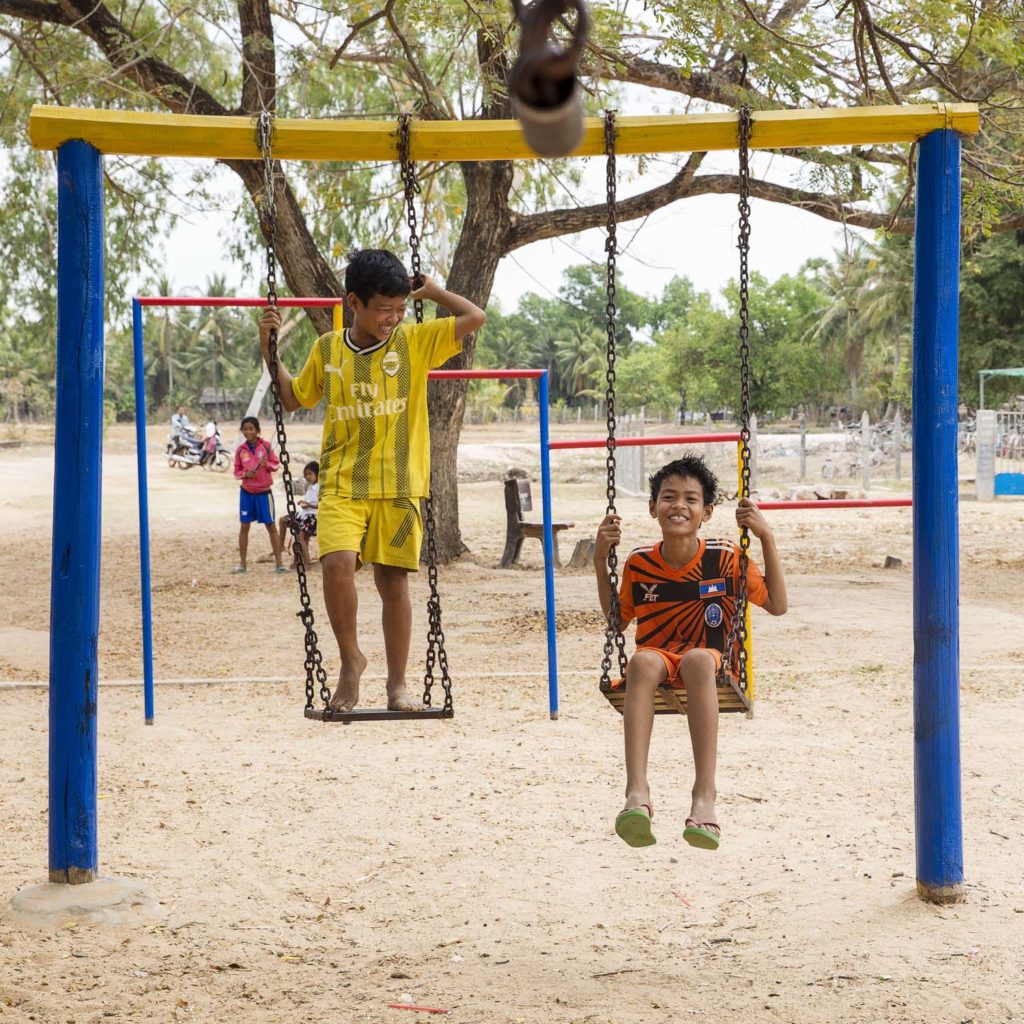
One of our goals is to improve the food security of the community at large. Subsistence farmers are vulnerable to food shocks – the failure of crops or rises in food prices. Learning how to grow food is an essential life skill for a Cambodian child. It is part of the learning curriculum, and we consider it really important to give children practical knowledge of how to grow food.
The school gardens have been instrumental in drawing communities together. This is significant as the recent history of Pol Pot’s regime involved the breaking down of familial and social bonds. Seeing families come together and work alongside each other for the benefit of the school and the broader community is helping to develop these bonds again.
We also create fishponds, because fish are a rich source of protein. The school director ensures that the poorest children have access to the fish and crops from school.
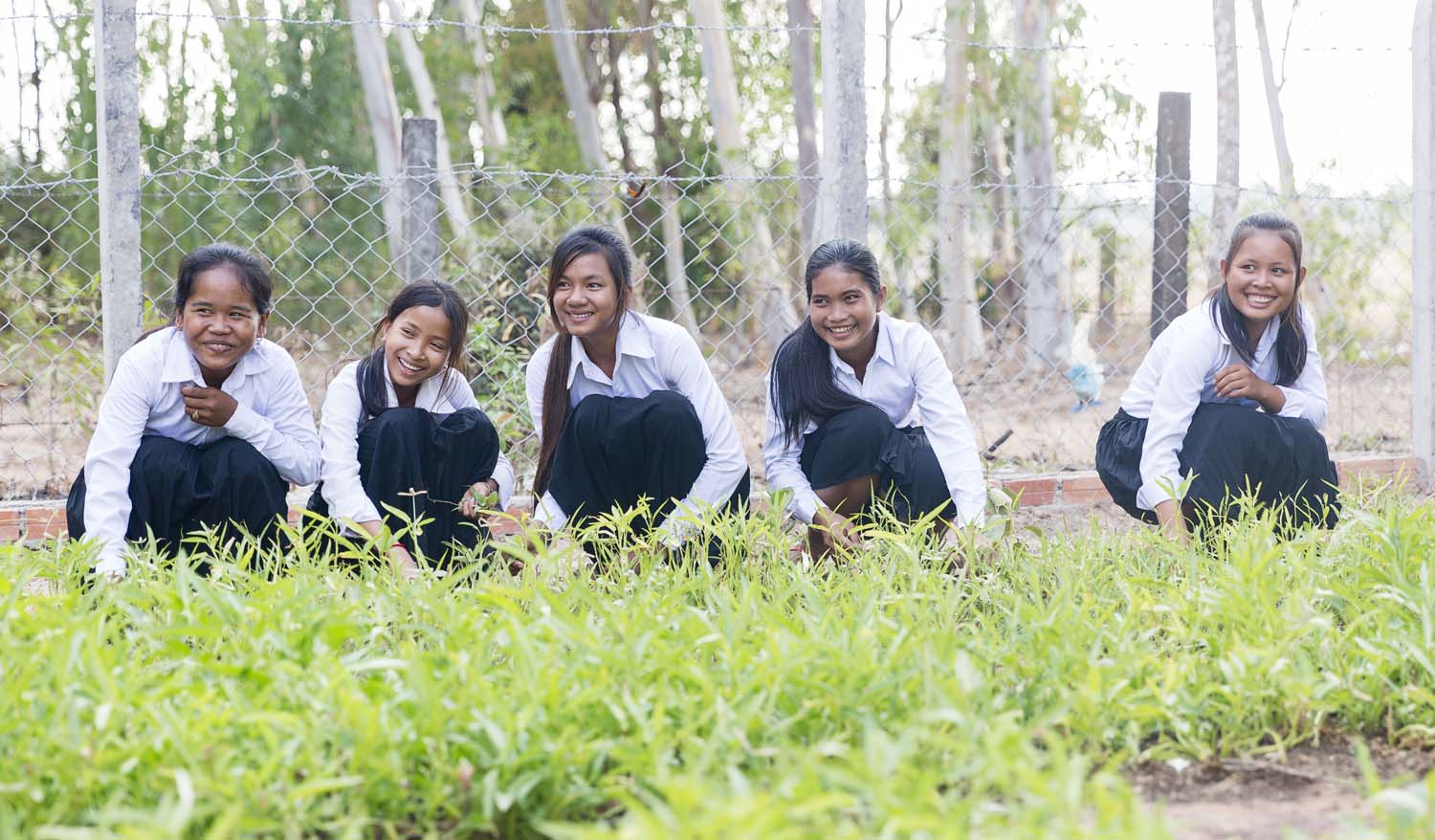
The best way to prepare a child for an effective primary school education is for them to attend pre-school classes. Primary schools have a responsibility to provide preschool classes for children, but they usually don’t have the resources or the teachers to teach 3-6 year olds. We refurbish a second room at the school as a preschool class with age-appropriate furniture. We tile the floor and buy blocks and colouring materials. Pre-school teachers are trained in Phnom Penh and we work with them to support their training and to resource them with teaching materials. As soon as we open a preschool class we are swamped with children.
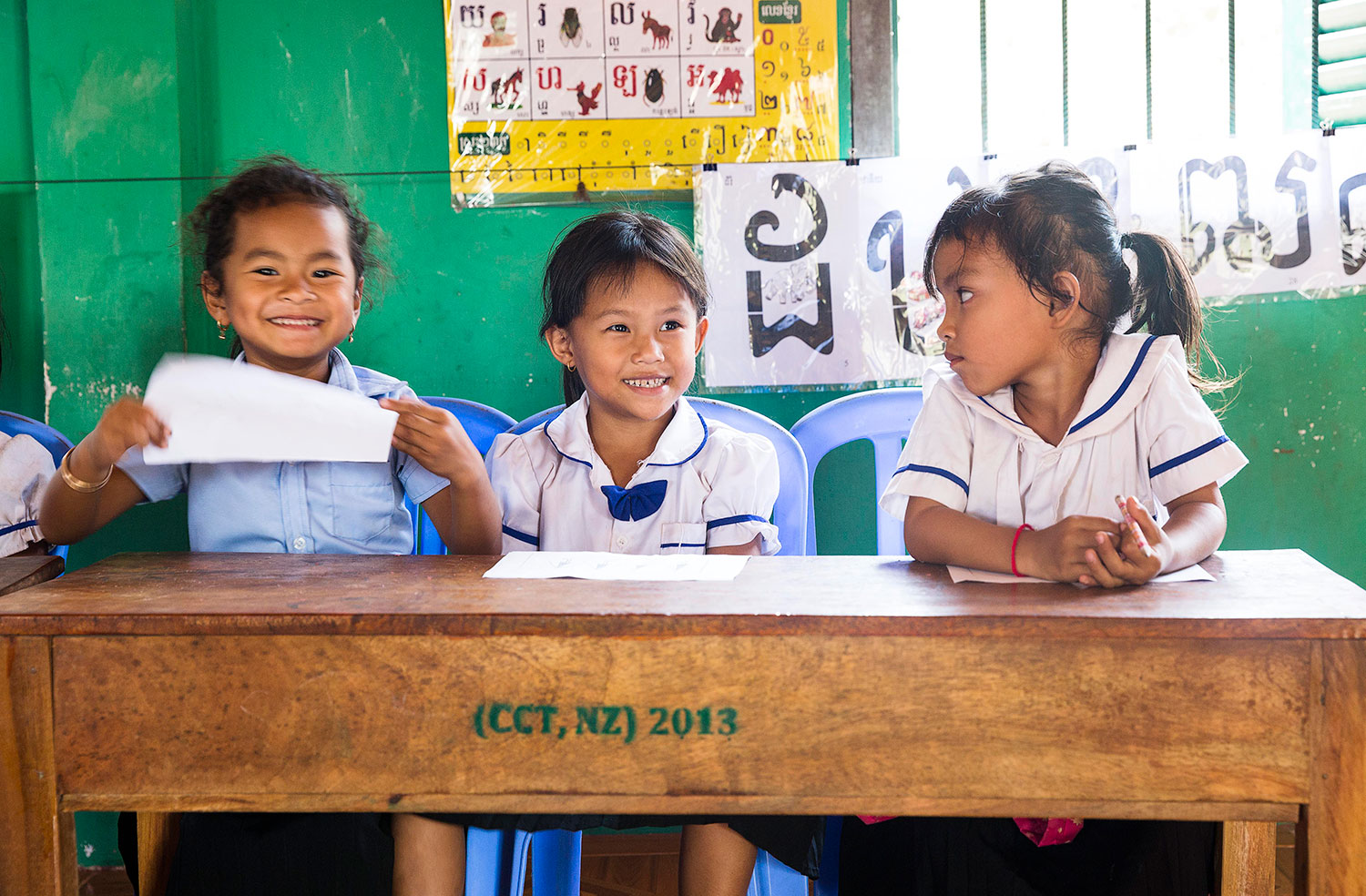
We offer free remedial lessons for the lowest performing 30% of students. This hugely improves the learning outcomes for struggling children and improves student retention. Children in Cambodia only attend school for four hours each day. We have two school sessions, 7am-11am or 1pm-5pm. Children who are struggling academically attend remedial classes in the hours they are not attending their main school session.
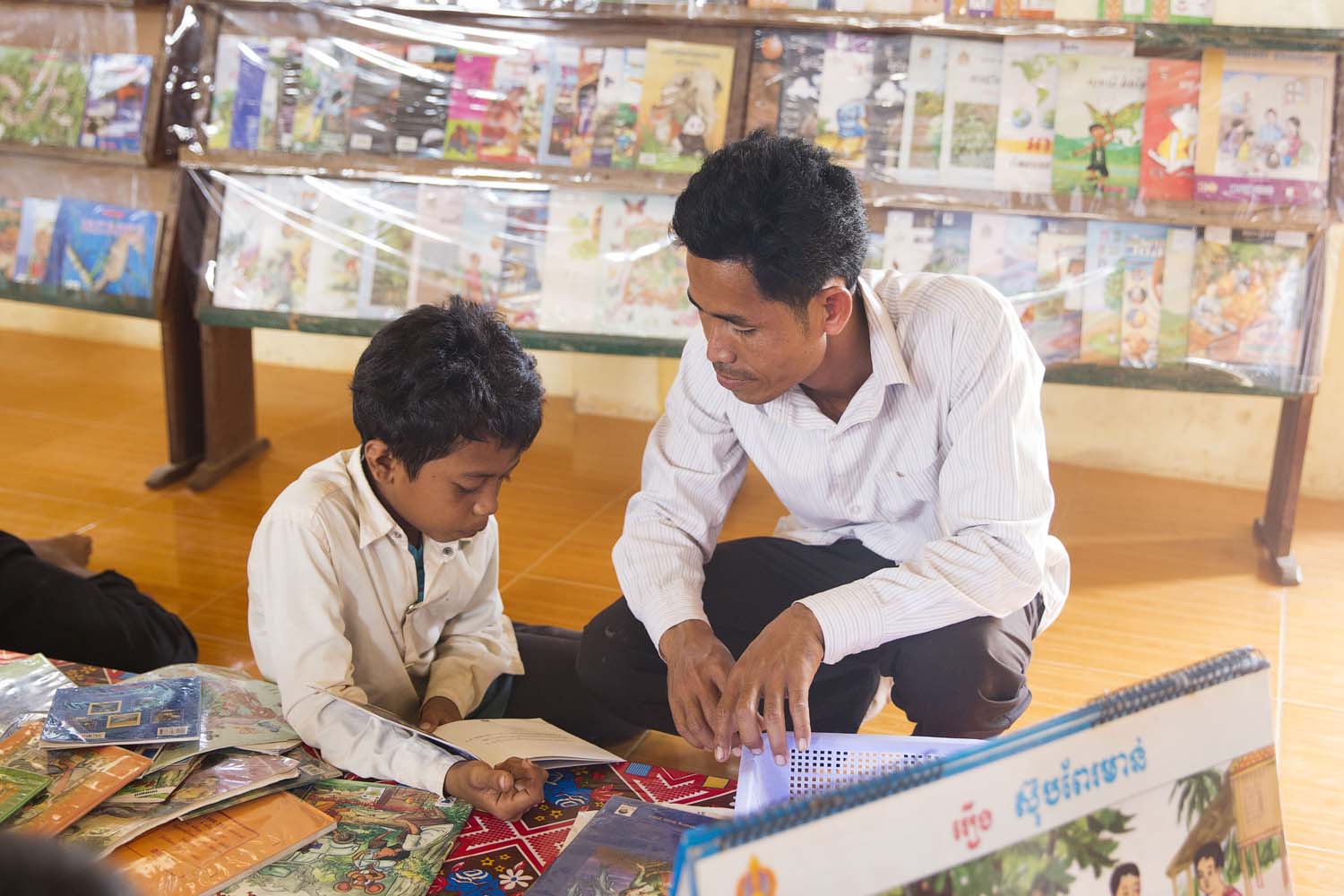
Many children miss out on life-changing education because their parents don’t have the $10 required to buy a school uniform. With your support we can provide poor families with essential school supplies and clothing so their children can go to the newly resourced CCT supported school.
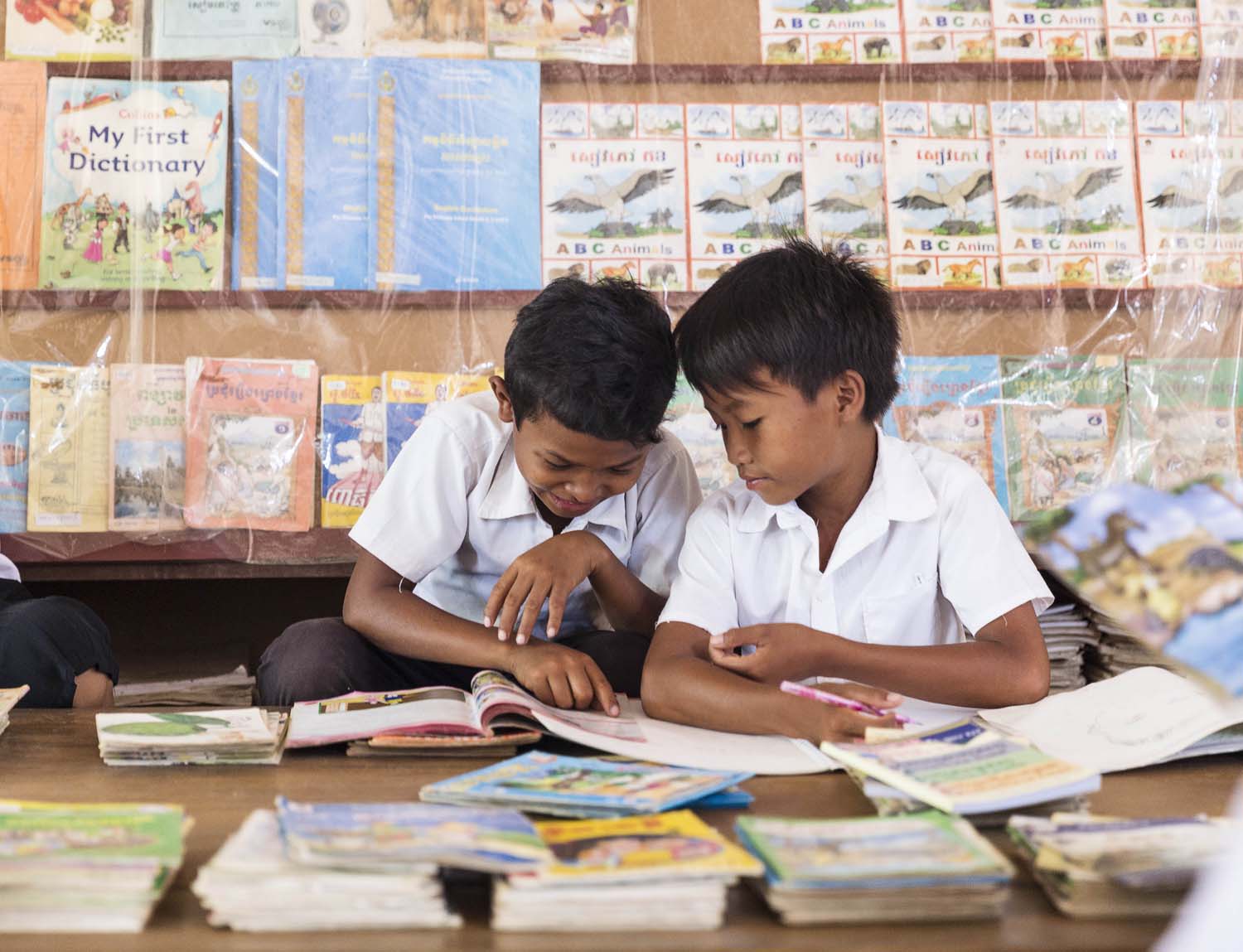
Children from poor families are often kept out of school to care for siblings, work on the family land or to earn an income to support the family. Sponsorship relieves the family financial situation and incentivises the parents to send the child to school rather than send them to work. Sponsorship also protects children from the threat of human traffickers who deceive parents into letting their children, particularly girls, go with them with empty promises of a better life.
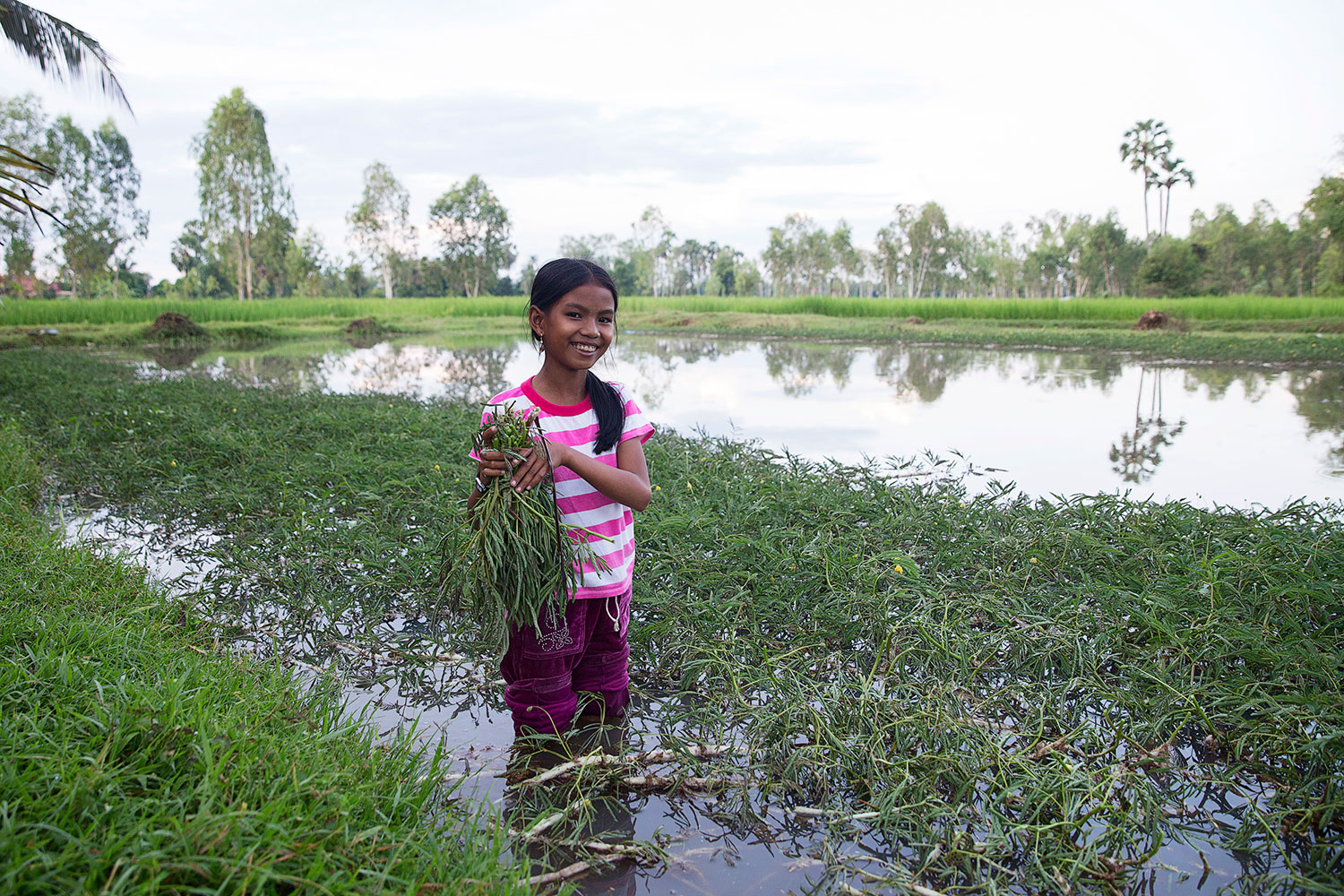
200 new teachers graduate from Teacher Training Colleges in Takeo and Kampot every year. The CCT provides each new graduate with a teacher pack containing paper, pens, scissors, a ruler, a compass and protractor, maps of the world and Cambodia, games, glue and more. These materials are highly valued by these new teachers and directly impact on the quality of their teaching.
At CCT supported schools we provide teachers with monthly professional development workshops and mentoring to help them become confident, competent, caring teachers.
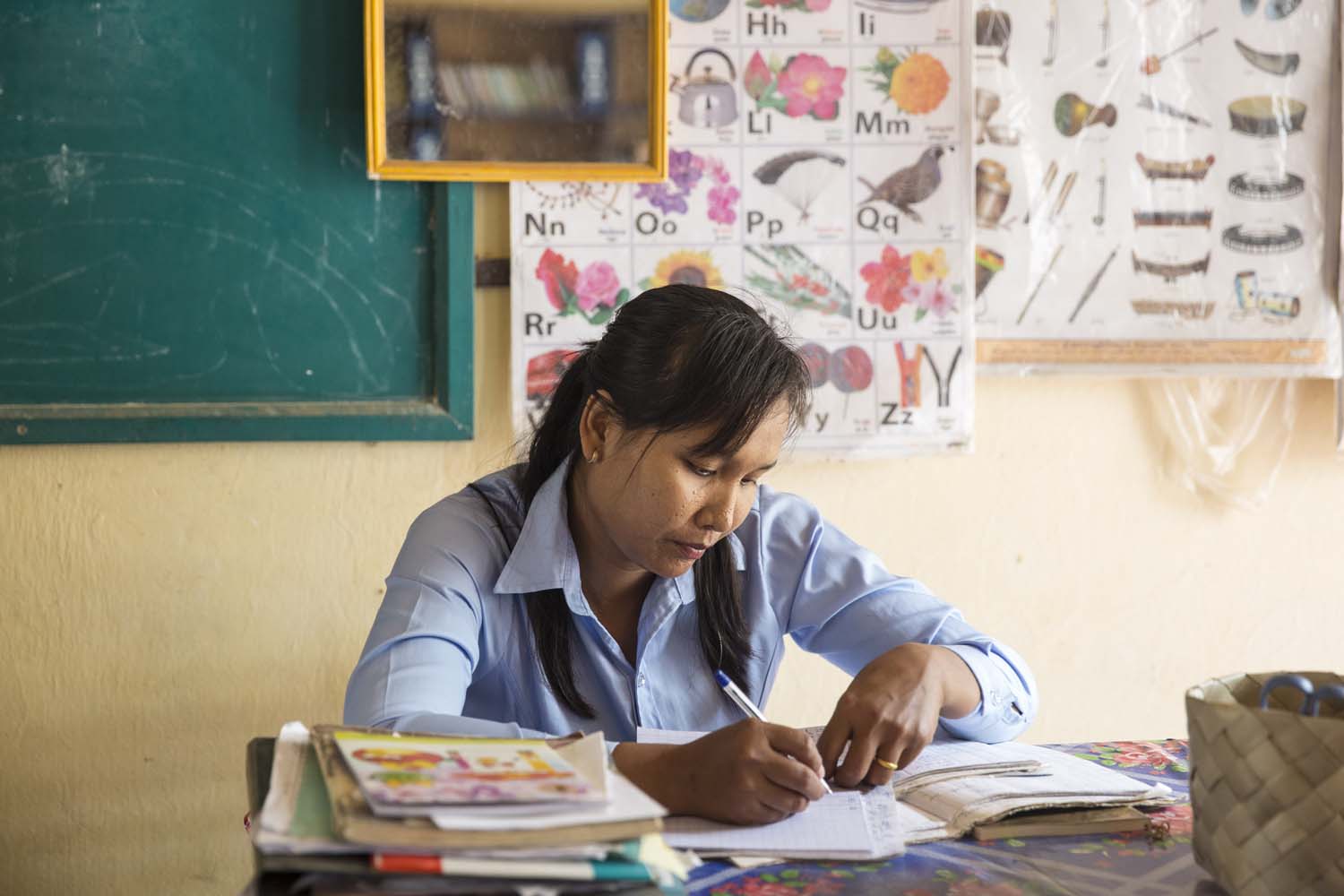
It is essential for the economic development of Cambodia that children learn to speak English. A child who can speak English has significantly more career opportunities available to them than a child who speaks only the native Cambodian language. English makes it possible for children to access and master technology and connects them to ideas, influences and contacts which poverty would seclude them from.
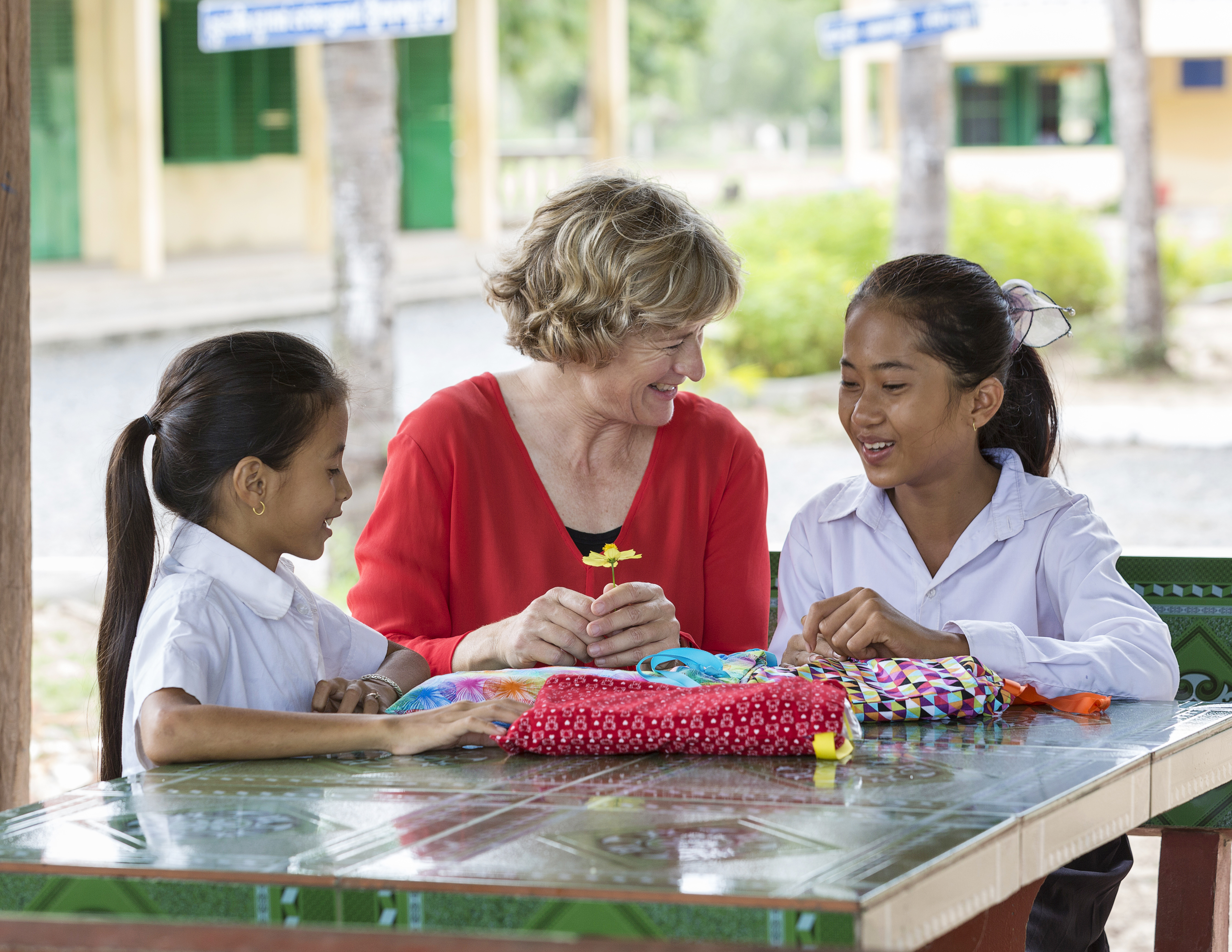
MESSAGE FROM DENISE
A CCT supported school is the centre of new life in the community – it represents the parent’s hopes and dreams for their children and the only realistic stepping stone out of poverty. Many parents have had limited education and have been totally disempowered from any form of engagement in their children’s education in the past. Because many parents are illiterate they do not feel they can have any say in education – we try to overcome that through ongoing community meetings and consultation. We encourage their ongoing involvement with the school, we consult with parents about what they want for their children and we convince them that their child’s education is a good investment; better than keeping the children at home to work in the fields. The parents and wider community are an important part of the school ecosystem, as much as the school is central to the community.
100% OF YOUR DONATION GOES DIRECTLY TO OUR WORK IN CAMBODIA.
All of our volunteers donate their own travel and accommodation costs when working in Cambodia or in New Zealand and donate their time and expertise. Neither Denise Arnold, nor any of the Trustees or volunteers draw a salary from CCT or take money from the charity for their expenses. They all believe passionately in what CCT is doing.
Where CCT does have administration costs, these are covered by donations, by the volunteers or by Lyon O’Neale Arnold, lawyers in Tauranga, of which CCT founder Denise Arnold is a Director. What costs CCT cannot avoid (bank fees and Xero costs) are covered by specific donations by individuals.
Every dollar donated goes to a specified purpose if the donor has one or the projects in Cambodia where it is carefully spent to get the maximum impact. Where possible supplies are purchased in Cambodia to support the local economy and to make our New Zealand dollars go further.
